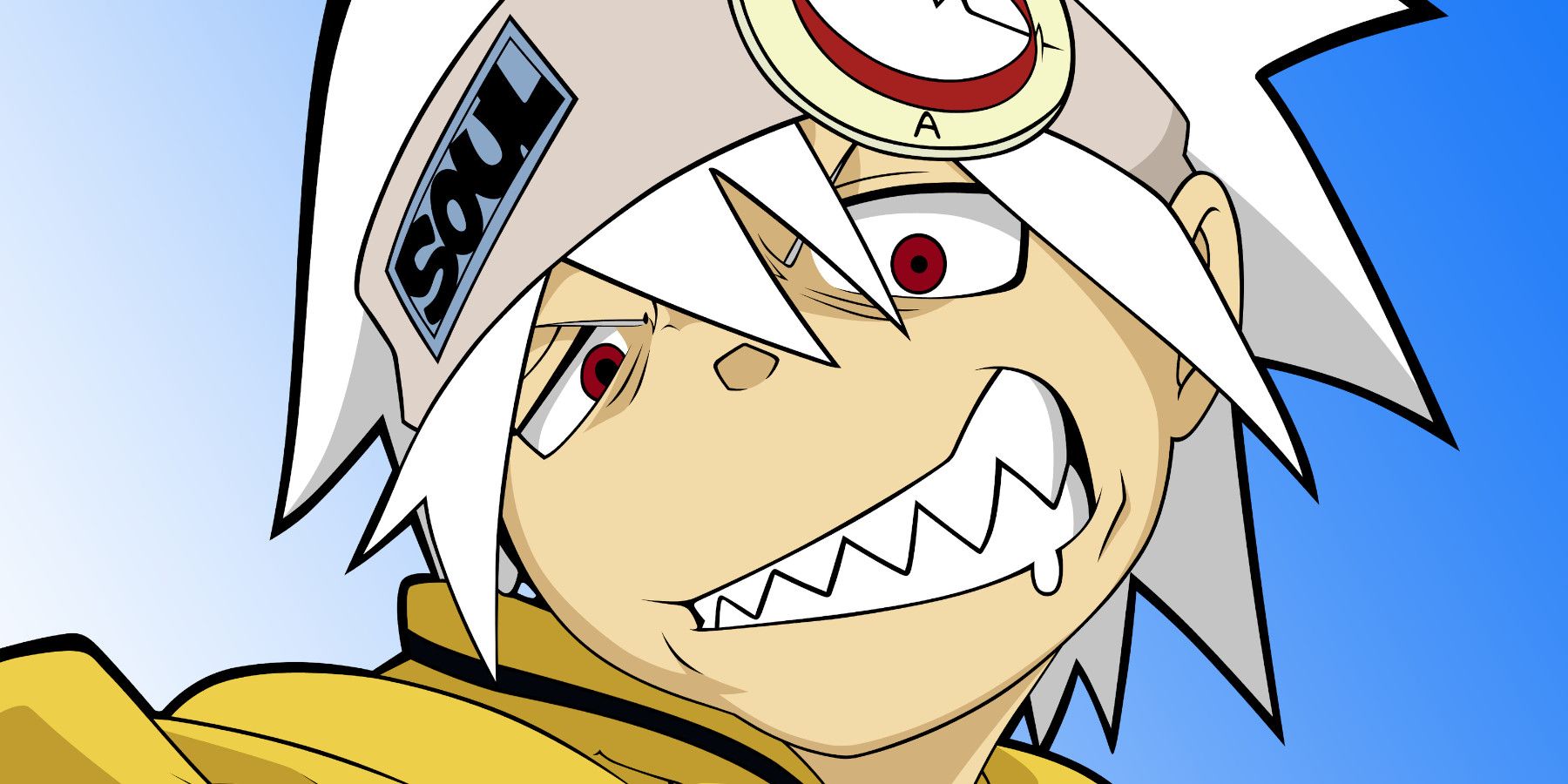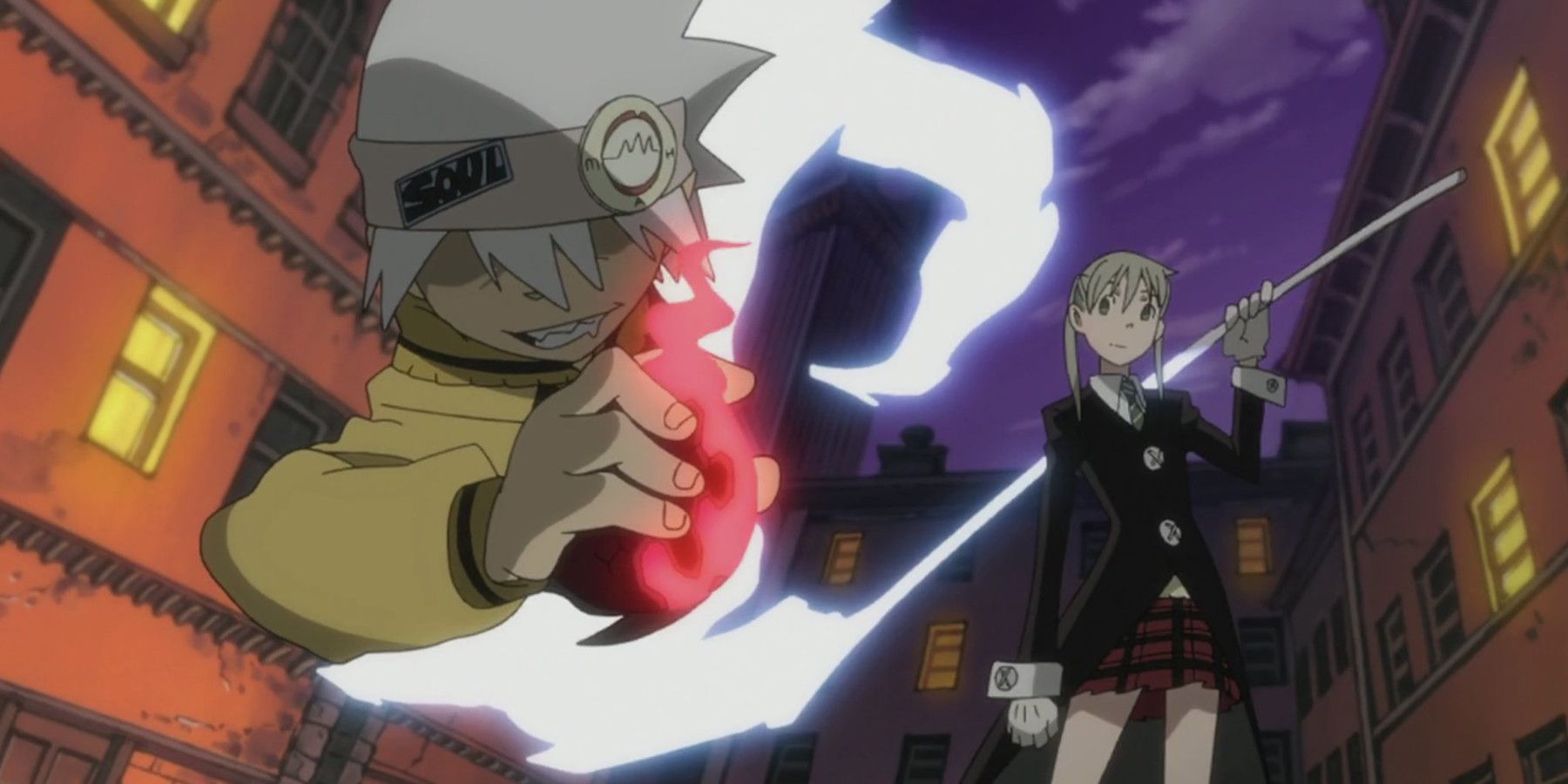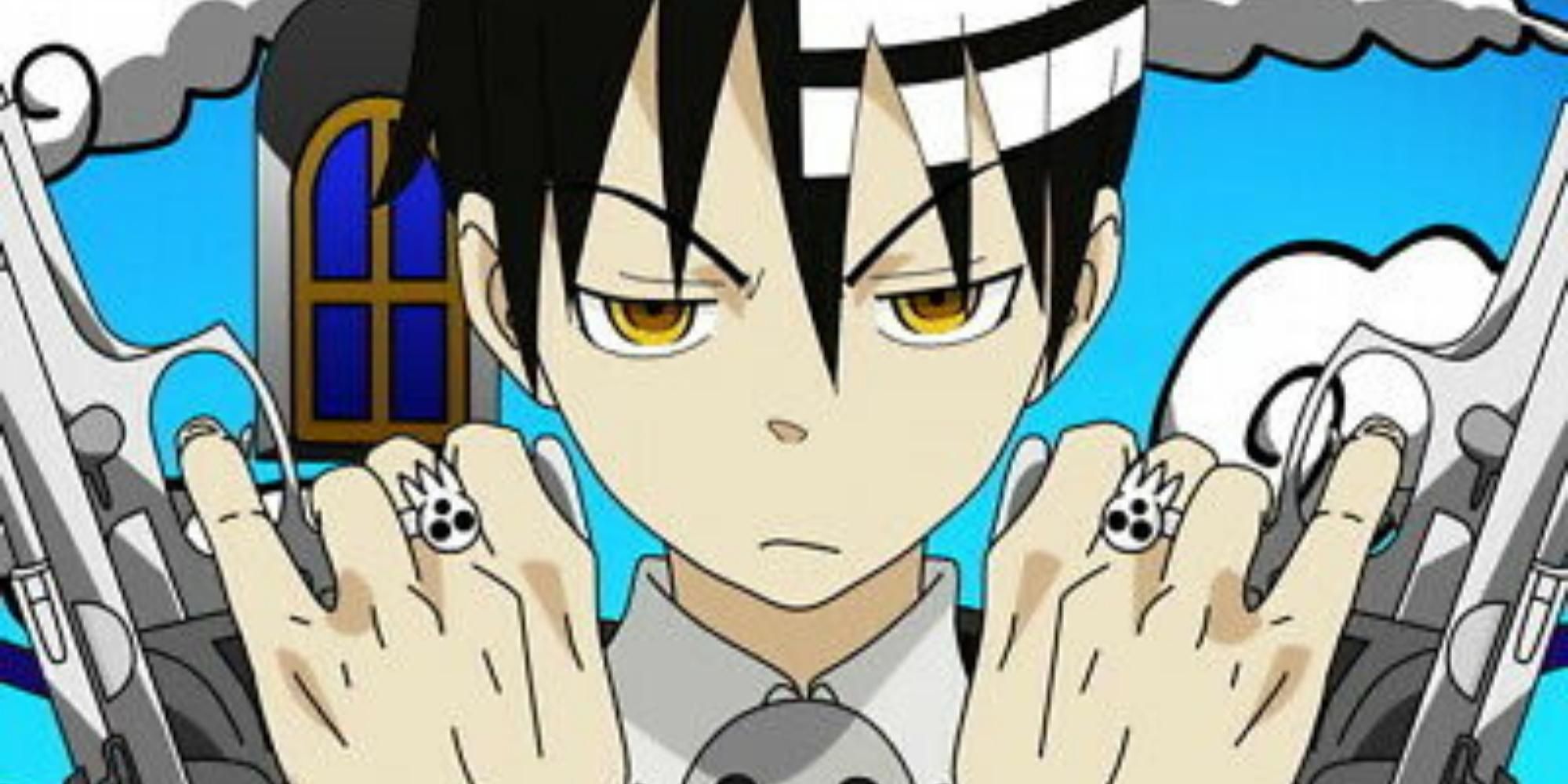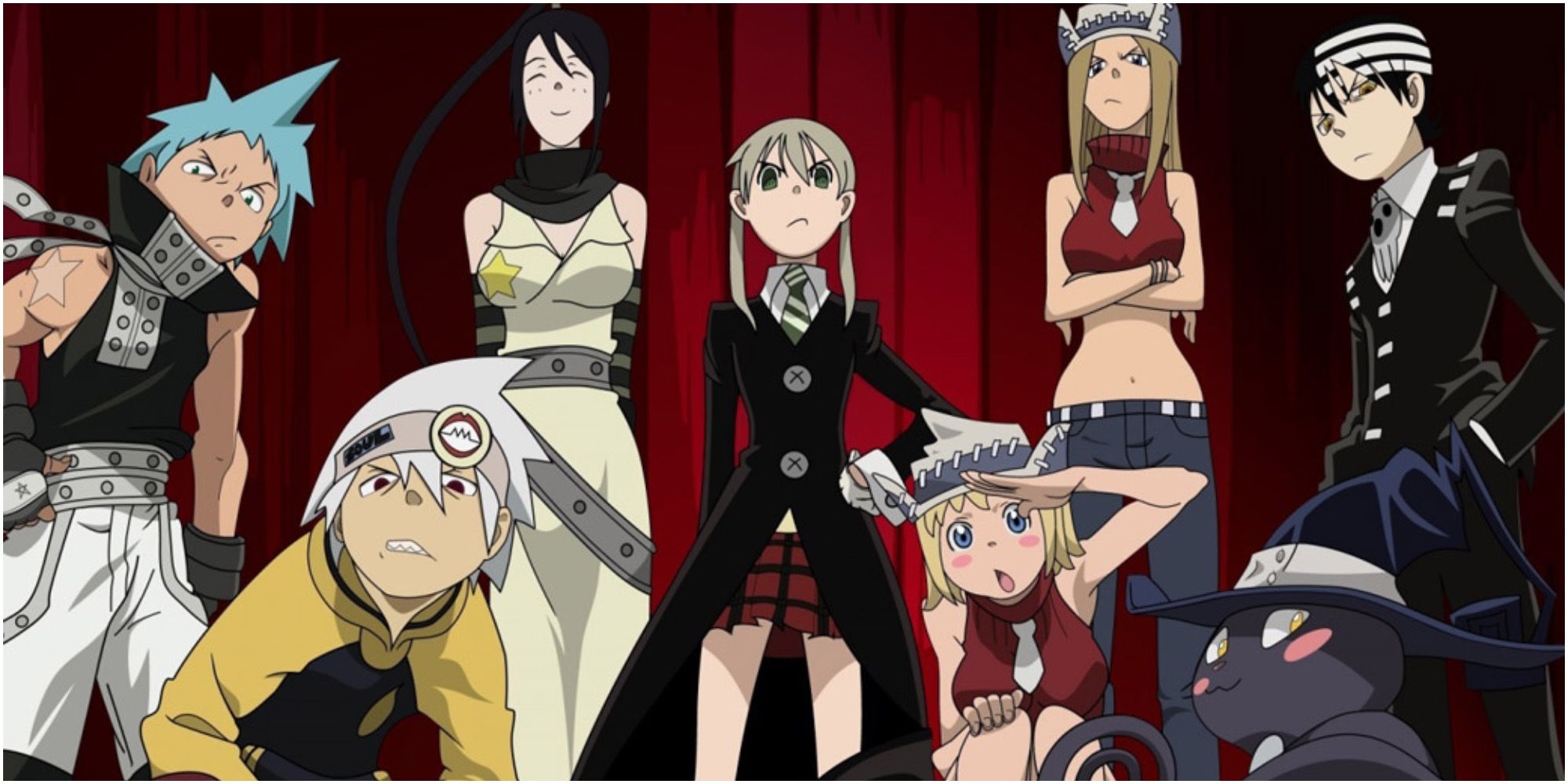When Fullmetal Alchemist Brotherhood was released to huge critical acclaim, audiences everywhere saw the potential in remaking anime adaptations that suffered from similar issues as the original FMA. One such request was a remake of 2008's Soul Eater, a show that was received well, especially in the west on Cartoon Network, but that was criticized for its ending, which diverged from the manga.
Like Brotherhood, Soul Eater was a production by Studio Bones, and it was overseen by director Takuya Igarashi of Ouran High School Host Club and Bungo Stray Dogs fame. It followed a group of "Weapon Meisters" and their sentient weapons as they attend an academy to learn to become grim reapers to hunt monsters. The divergence from the source material at the ending of its anime adaptation was criticized for numerous reasons. Namely, how the themes of teamwork felt abandoned in place of a conclusion that favored only a few characters rather than the team the series had been about. The reasons are more numerous than that, certainly, but it's led to demand for a remake that - in all honesty - probably couldn't be made.
Seeing Red
The anime industry is nothing like it was a decade ago, and this is not a condemnation nor an appraisal. It is simply a fact that every few years, the topical and popular anime change, along with the dominant styles and techniques being employed. While the changes reflected within the media have been good and bad, the industry trends within studios have become increasingly worrisome.
In 2018, the Teikoku Databank reported that 30% of studios within the industry were at a loss financially. Even the percentage of increase in revenue among other studios was dropped from previous years. This is all in spite of the fact that as of 2018, anime companies were consecutively reaching record heights in revenue every year.
"Teikoku Databank attributed the increased total revenues to major production companies securing an appropriate amount of production and continuing to improve the production volume, despite a shortage of human resources and high outsourcing costs in the industry as a whole."
-Alex Mateo, Anime News Network
This is a trend in looking at industry numbers: a deceptively optimistic increase in revenue, yet equally abundant costs amassed for the staff involved. And this was just in 2018, before the pandemic when demand for streaming entertainment skyrocketed, and the international market for anime began to demand even more of the industry.
The Animator's Plight
Anime as an industry has only grown larger and larger, but those changes aren't always reflected in every aspect of the production process, and not positively either. The revenue, on the whole, has increased, but the animators aren't sharing in that growth that has spread internationally.
In 2021, in the midst of the pandemic's effects on demand for animation, the New York Times attacked this very notion in a piece discussing the conditions of working in animation in Japan. The results were many of the same things echoed in video essays and blog posts within fandoms about the issues: overwork, underpay, and the money going to production committees.
Ben Dooley and Hikari Hida of the New York Times described these committees as "ad hoc coalitions of toy manufacturers, comic book publishers, and other companies that are created to finance each project." Ultimately, while these committees have enjoyed the profits from the medium's international boom, the same can't be said for the ones responsible for the art itself.
The Soul Eater Problem
None of this is new to those who have followed the medium for a prolonged period of time, which isn't to say that it is any less valid a concern worth raising a stink about. But how does this pertain to Soul Eater, just one series from the late 2000s from a studio that continues to produce high-quality TV anime?
Because attempting to do what Soul Eater did in 2008 today would be increasingly difficult by the industry standards. Love it or hate it, Soul Eater was a very well-produced show by a studio that was arguably at its peak around that time. It was a uniquely exciting action show that had a lot of heart.
It could be colors or its character designs, but something about how the show was made feels different from how a lot of modern anime is made. Director Takuya Igarashi was at the top of their game and the action was some of the studio's finest, including the work of Bones' legendary Yutaka Nakamura.
It isn't as if their fingerprints aren't still all over the industry. Igarashi is continuing to direct at Bones, overseeing the Bungo Stray Dogs series. Nakamura is still contracted at Bones, where he is regularly unleashed to create My Hero Academia's most retweeted moments in each arc and film.
The talent may not have changed, but the responsibilities and expectations placed upon said talent in the current state of the industry certainly have. Kim Morrissy of Anime News Network spoke with Joan Chung, formerly of Science Saru, about her time in the industry prior to leaving in 2021. She spoke about the work culture and how it changed, notably as a result of the pandemic.
Even despite language barriers, Chung recalled Science Saru was a studio with a welcoming work culture that kept its head above water under even-then tight scheduling. She cited an encumbering number of productions as a key issue. She told ANN, "I do not believe this was a manageable number of productions... the burden on the core team was heavier than it should have been.”
Even Bones, with its positive reputation among fans and its eclectic library of diverse and high-quality works spanning the last two decades, isn't the same studio it was a decade ago. They are now the studio behind My Hero Academia, a yearly event being worked on nearly year-round, to say nothing of the films and OVAs that are produced in the meantime.
The industry is in need of more money and better scheduling for its projects, but especially with regard to money, the wages of animators need to increase. As it is, the anime industry is heavily contractor-focused, and according to Simona Stanzani, a translator who spoke to the New York Times, the studios "have a lot of cannon fodder - they have no reason to raise wages.”
Animators aren't the only pieces of the puzzle. It takes a team and the directors' oversight and feedback to ensure consistency across a project. In a well-funded project with a manageable schedule, this process of revision, correction, and quality control is what contributed to phenomenal TV projects like Soul Eater.
It's understandable that fans of Soul Eater's manga may have been disappointed by the original series' conclusion, and that a true ending would be immensely satisfying. However, for what it was, that original anime was something special. A new crack at it isn't impossible, but without even a fraction of the same creative team, it may lack the same soul, and even with it, the industry is ill-equipped to produce such work with respect to the creators.
Source: Anime News Network [1][2], New York Times




